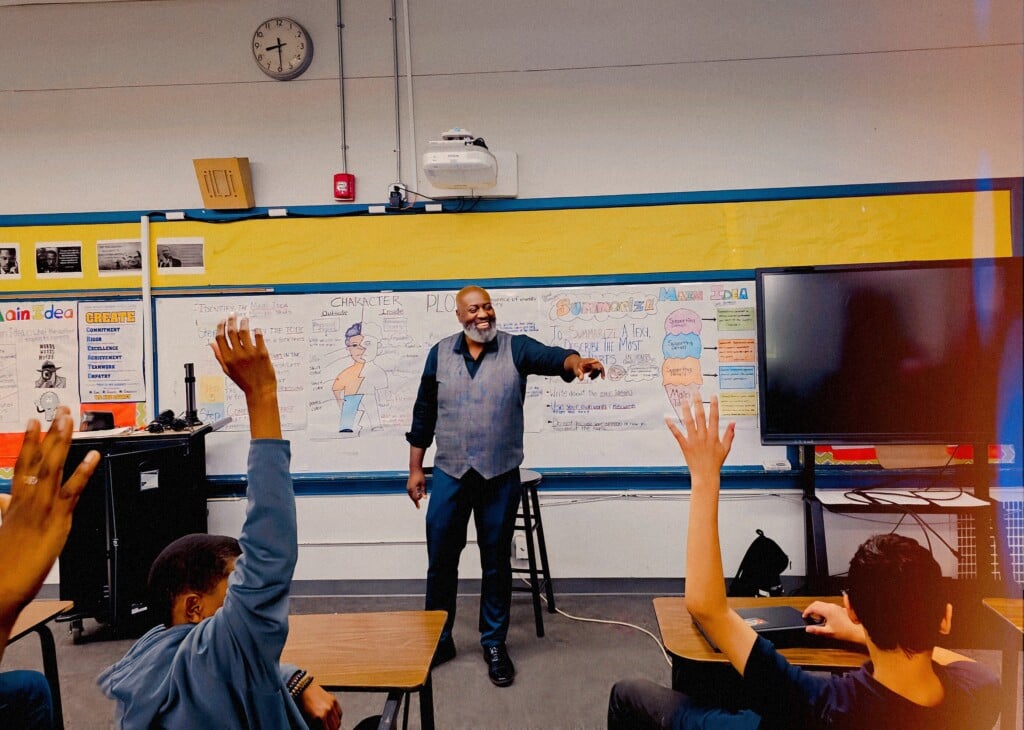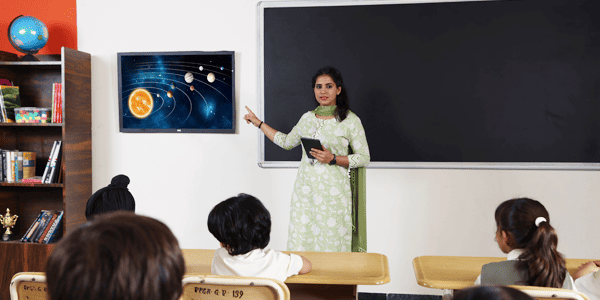Achieve Academic Success with Primary Science Tuition Singapore
Achieve Academic Success with Primary Science Tuition Singapore
Blog Article
Exploring the Various Training Methods in Primary Science Education Today
Inquiry-based learning, hands-on experiments, and the integration of modern technology are redefining just how teachers involve young minds. In addition, collective approaches and distinguished guideline are being used to provide to the varied needs of pupils, boosting both involvement and understanding.
Inquiry-Based Learning
Inquiry-Based Discovering (IBL) is a pedagogical approach that urges students to check out scientific ideas through questioning, examination, and hands-on testing. This technique highlights the role of students as energetic participants in their understanding, promoting crucial thinking and analytic skills. By involving with real-world inquiries, trainees become motivated and interested, which boosts their understanding of clinical concepts.
In IBL, teachers act as facilitators, assisting students as they browse their queries rather than delivering info straight. This student-centered technique enables distinction, accommodating different discovering speeds and designs. Trainees establish abilities in developing hypotheses, developing experiments, and assessing information, which are essential for clinical proficiency.
Additionally, IBL promotes collaboration among trainees, motivating them to share searchings for and ideas. This cumulative questions advertises social skills and a feeling of community within the classroom. Additionally, the process of questions urges durability, as pupils find out to accept failure as a stepping rock toward understanding.
Hands-On Experiments
Hands-on experiments are an important part of effective science education and learning, complementing the principles of inquiry-based learning. These experiments permit students to involve straight with scientific concepts, fostering a deeper understanding through experiential learning. By controling products and observing end results, young learners can understand abstract theories in concrete means.
Such activities promote critical reasoning and analytical abilities, as pupils assume end results, conduct experiments, and assess results. This process motivates them to ask questions, improve their understanding, and develop a clinical way of thinking. Hands-on experiments can be customized to diverse understanding styles, making certain that all students have the possibility to involve meaningfully with the material.
Additionally, hands-on experiments often encourage cooperation amongst peers, promoting teamwork and interaction abilities. Operating in groups enables students to share ideas, go over findings, and discover from each other, which enhances their general academic experience.
Including hands-on experiments right into the key scientific research curriculum not only enhances the learning atmosphere yet also cultivates a long-lasting rate of interest in scientific research. By proactively joining their education, students are most likely to develop an interest for clinical questions that prolongs past the classroom.
Modern Technology Integration
Integrating innovation right into primary science education has come to be increasingly crucial in promoting trainee engagement and boosting finding out end results. Using electronic devices, such as interactive simulations, online labs, and instructional software application, provides pupils with opportunities to check out scientific principles in cutting-edge means. These resources promote a deeper understanding of complex subjects by enabling students to picture and adjust variables that would be unwise in a standard classroom setting.
Additionally, innovation integration encourages personalized discovering experiences. Pupils can progress at their own speed, revisiting difficult concepts via multimedia resources, which provide to various learning designs. This adaptability not only supports individual development but likewise cultivates a feeling of freedom in students.
Additionally, modern technology works as a bridge to real-world scientific research, attaching students with present research and expert contributions. Accessibility to scientific journals and online data sources widens trainees' viewpoints on clinical inquiry and fosters vital believing abilities.
Collaborative Discovering
Collective understanding plays a crucial role in key scientific research education and learning by fostering team effort and communication skills amongst students. This method urges students to work with each other, share expertise, and involve in problem-solving, which boosts their check this site out understanding of scientific ideas. By getting involved in group tasks, students find out to articulate their concepts, listen to varied perspectives, and negotiate solutions, all of which are important abilities in both scholastic and real-world contexts.

Study indicates that collaborative learning can result in increased motivation and engagement in scientific research subjects, as pupils find pleasure in common experiences (primary science tuition Singapore). Additionally, this method prepares pupils for future collective undertakings, equipping them with the abilities required for effective synergy in higher education and specialist settings. Inevitably, welcoming collaborative knowing in main science education and learning can significantly enrich the learning experience and promote a much deeper understanding of clinical questions
Set Apart Instruction

Set apart instruction can materialize in various methods, such as differing the material, processes, or items of understanding. Teachers might utilize tiered tasks that offer differing degrees of intricacy, permitting trainees to work at their respective readiness levels. Additionally, adaptable grouping strategies can promote collaboration among students with different capabilities, promoting peer learning.
Analysis plays an essential duty in this approach, as it informs direction and assists educators comprehend each pupil's distinct needs. Formative evaluations, such as tests and monitorings, can lead instructors in readjusting their strategies to enhance discovering end results. primary science tuition Singapore. Inevitably, by carrying out set apart guideline in primary science education, teachers can cultivate an extra fair and reliable understanding setting, encouraging all trainees to reach their complete potential in comprehending scientific sensations
Verdict
In summary, the varied teaching strategies in key scientific research education, including inquiry-based understanding, hands-on experiments, innovation integration, joint this article understanding, and set apart direction, collectively add to a more reliable discovering atmosphere. These approaches advertise critical reasoning, analytical skills, and a much deeper comprehension of clinical ideas. By implementing these approaches, educators can produce appealing and helpful hints helpful classrooms that resolve the different needs of students, inevitably fostering a long-lasting rate of interest in science and enhancing scholastic success.
Inquiry-Based Learning (IBL) is an instructional approach that motivates trainees to discover scientific principles through wondering about, examination, and hands-on trial and error.Joint understanding plays an important duty in main scientific research education by promoting team effort and interaction skills amongst pupils.Research study indicates that collaborative understanding can lead to boosted inspiration and involvement in scientific research subjects, as pupils locate pleasure in common experiences.In promoting an inclusive learning setting, distinguished instruction emerges as a key technique to fit the varied needs and capabilities of pupils in main science education. Eventually, by applying separated direction in primary science education, instructors can grow a much more fair and reliable learning atmosphere, encouraging all pupils to reach their complete capacity in comprehending clinical sensations.
Report this page